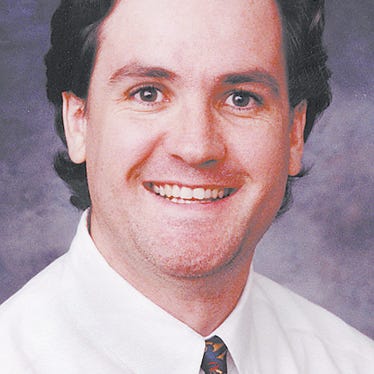
The 2013 Beltwide conference is set to run from January 7 through 10 in San Antonio. Sure to be well-attended: an irrigation session scheduled for the afternoon of January 9 from 1:30 p.m. to 6 p.m.
“Mainly, we want to highlight and update some really practical irrigation research that’s going on throughout the Cotton Belt,” says Dana Porter, who is putting the session agenda together.
Porter, an associate professor and agricultural engineer at Texas A&M AgriLife in Lubbock, says the recent droughts will certainly be a topic of conversation “because they’ve really affected cotton management as have increasingly limited water supplies due to drought, pumping restrictions or aquifer depletion. There are all kinds of irrigation/water-related issues that make this topic so timely for the conference.”
In 2011 and 2012, there were record-breaking droughts. “2012 has been a tough year for much of the country, but we’ve been in a hard drought (in Texas) for two years. I’ve had a lot of requests for crop weather data from many stakeholders, including crop insurance adjusters and the USDA Risk Management Agency.”
Porter has also written articles on “current season conditions compared to long-term trends. I’m just trying to provide a picture of what it looks like in the field and why we’re having trouble keeping up with water demand.”
Have Texas’ cotton growers gotten any relief?
“Late in the season, there’s been a bit of a break. Early in the season, I kept hearing from those saying conditions seemed so much better than (2011). Yes, it did look better – but we still remain in a drought.
“If you want to consider temperature, humidity, wind and other things under one umbrella, ‘crop evapotranspiration’ is a good, combined term. At mid-summer, I plotted that out – long-term average versus last year and this year.”
Porter found that 2012 conditions plotted “right in between the extreme of 2011 and the long-term average. At mid-season we were still drier than usual with higher crop water demand and less rainfall than usual.”
One of the problems is carryover from 2011. “We pumped wells so hard last year that they haven’t recovered on many farms. That limited water capacity for the crop.”
Among those who will be speaking at the Beltwide conference:
Ed Barnes, director of agriculture research, Cotton Incorporated.
“He’ll be leading off with an overview of Cotton Incorporated-supported irrigation programs. Water efficiency and stewardship are certainly priorities with Cotton Incorporated, and they’ve been putting a lot of support into those areas of research – equipment as well as management.”
Barnes “has a background as an irrigation engineer. So, he’s really interested in, and plugged into, what’s going on in the field.
Dave Verbree, crop physiologist at University of Tennessee at Jackson.
Verbree is working in Tennessee on sub-surface drip irrigation. At Beltwide, he will be speaking on “cultivar, nitrogen management and water management in different varieties. This will be a great talk because irrigation research in the Mid-South is expanding. The (recent) drought has really drawn people’s interest to irrigation systems.”
George Vellidis, professor of biological and agricultural engineering at the University of Georgia.
Vellidis “works with soil-moisture sensors and is also supported by Cotton Incorporated. He’ll present some of his work on irrigation scheduling.”
Jim Bordovsky, Texas A&M AgriLife Research at Lubbock.
“He has done some really interesting research on optimizing the value of water based on timing and rates under limited irrigation scenarios – center-pivot as well as drip irrigation. Jim is a recognized leader in cotton irrigation research.”
Jay Yates, agricultural economist and risk management specialist at Texas A&M AgriLife Extension Service.
Yates will be speaking on “economic considerations of irrigation.”
Porter will wrap up the proceedings and “try to tie all the ends together by talking about ‘irrigation management in an integrated crop production system.’ We’ll be looking at limiting factors and getting the most out of our technologies through integrated management.”
Porter also hopes to allow for questions and discussion time. “It would be great for folks to be able to ask their questions while the experts are in the room. We’ll also have an extended break in the middle of the program for information-sharing and to allow browsing of educational displays and booths promoting good irrigation resources and tools.
The last time we did this, attendees really had a lot of questions and informal discussion continued long after the main program. It was a great information sharing opportunity, and I’m looking forward to further discussions at this upcoming workshop.”
About the Author(s)
You May Also Like






